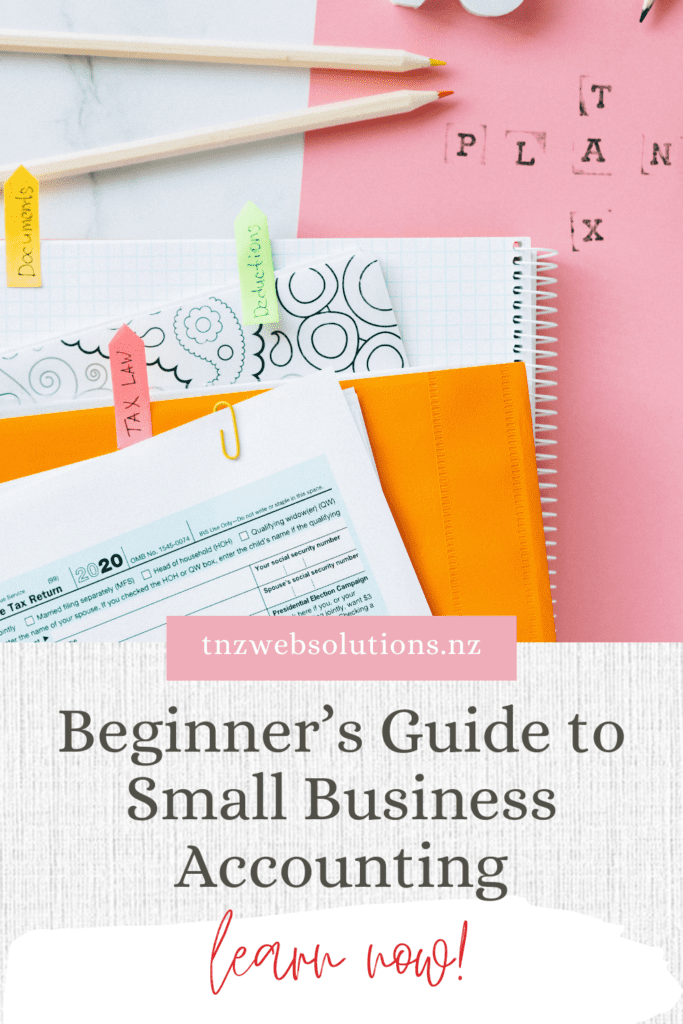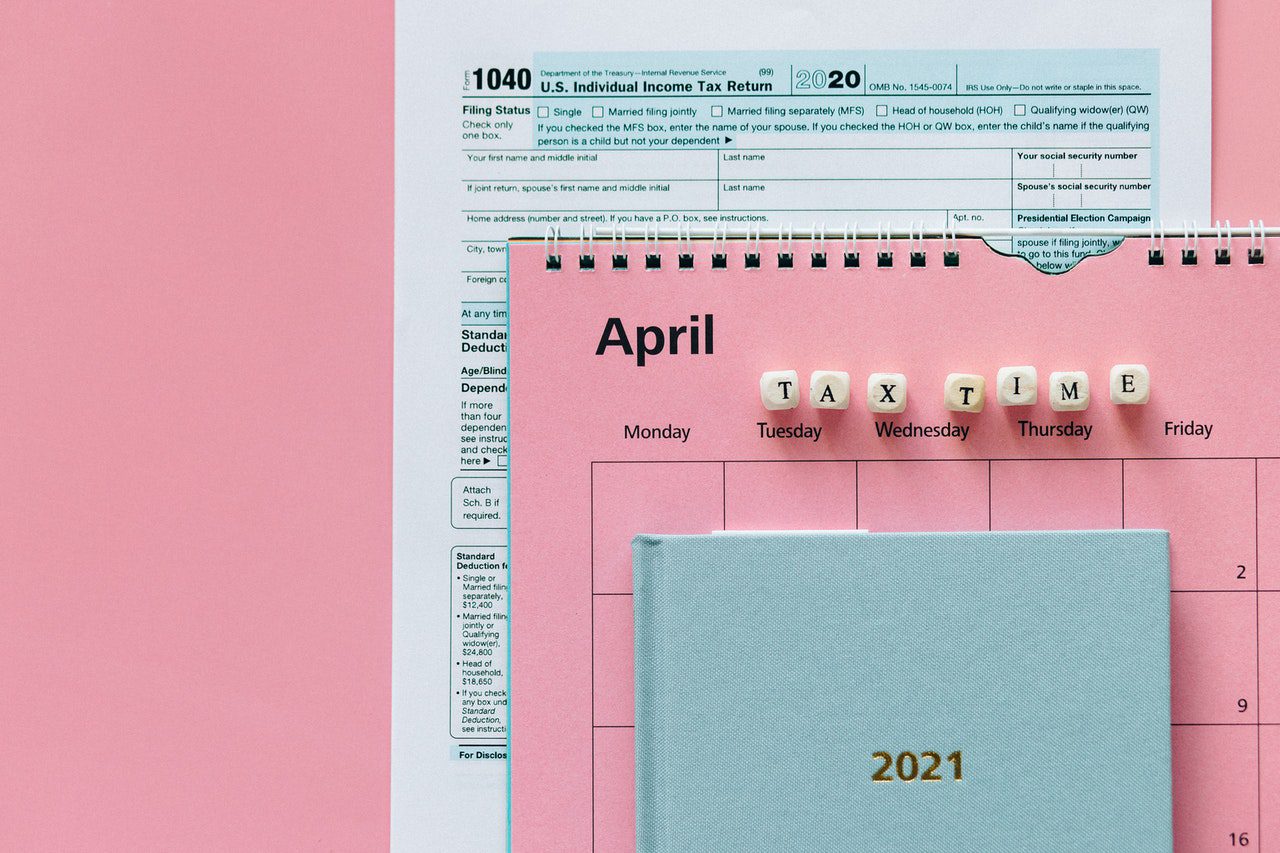If you have just launched your business, congratulations! It requires a lot of courage and perseverance to get started. However, running a business isn’t all fun and games. With the launch of your business, you’ll need to plan the accounting tasks that come along with running a business. In today’s article, we discuss all aspects of small business accounting to help your business run smoothly.
What is Accounting?
It’s the process of recording the financial transactions pertaining to your business. The accounting process includes analysing, summarising, and reporting the transactions to regulators, tax collection entities, and oversight agencies.
All financial statements used in accounting are a concise summary of the financial transactions of an accounting period, summarising your business’s operations, cash flows, and financial position.
It’s important to understand that accounting is one of the most important functions for decision-making regardless of the nature and size of the business. In addition, it’s a tool that helps measure our business’s performance during a specific period of time.
What is Small Business Accounting?
It involves the process of recording, analysing, and tracking the financial transactions of your small business.
While small business accounting is a tedious task, it’s necessary to avoid piles of paperwork and cash flow snafus.
Small business accounting helps you track the money that flows in and out of your accounts. It could be in the form of sales, purchases, payments, and liabilities.
It’s a complex topic but boils down to recording financial transactions (i.e. bookkeeping), creating financial reports, and filing tax returns.
How To Do Small Business Accounting
Follow these steps to set up a basic accounting cycle for your new business.
- Open a different bank account. A dedicated bank account will help you organise your revenue. In addition, it’ll allow you to easily plan for taxes.
- Record all expenses and income. This helps you monitor your deductible tax deductions, and prepare tax returns and financial statements. In addition, it also helps you track the growth of your organisation.
- Select an accounting method. Before establishing a bookkeeping system, it’s important to choose an accounting method. You can either record your transactions on an accrual basis or on the basis of cash. With accrual basis accounting, you use the double-entry method of accounting. On the other hand, with cash-basis accounting, you record expenses and income when you pay or receive cash.
- Transactions and trial balance. When using an accrual basis accounting, transactions are recorded as journal entries. They’re recorded in chronological order. The record contains the amounts credited or debited, and the date of the transaction along with an explanatory note. Once the entries are balanced, they’re posted into the general ledger. After which a trial balance is prepared.
- Make an adjusted trial balance. This is done to ensure that the expenses and income match accurately in the financial statements.
- Generate financial statements. Generate statements such as the balance sheet, cash flow statement, or income statement.
- Reconcile and close the books. This is the last step in the cycle of accounting. Reset the balances of temporary accounts by making post-closing entries.
Small Business Accounting Tips
As a small business, you need to follow the basic accounting process to ensure good financial management practices which are:
- Keep your personal and business expenses separately. Doing so ensures that you can easily track and maintain records of your business expenses and incomes.
- Hire a bookkeeper or get accounting software like Xero. It makes the entire process more organised. In addition, it ensures you have all the necessary information handy.
- Create a budget. Create a list of expenditures and revenue projections. Next, compare the budget to actual revenue and expenses.
- Keep business records accurate and up-to-date. Accounting software will automate everything. In addition, it will digitally store your financial records.
Xero Accounting Software
New to accounting or find the process too complicated? Opt for cloud-based small business accounting software such as Xero. It automates all the above-mentioned steps which make balancing your books easier.
Here are a few more reasons why you should consider using Xero accounting software:
- Access everything easily. It’s a powerful accounting software that automates tasks such as reporting and invoicing.
- Creates a financial picture of your business.
- Makes end-of-year tax returns easy.
- Connects to your bank so the transactions automatically appear in the software. Therefore, you can see an updated cash flow every day.
- Allows you to collaborate with your team in real-time.
- You can customise the software to suit your needs.
Accounting Equation Explained
The accounting equation states that your business’s total assets are equal to the sum of your shareholder’s equity and your business’s liabilities.
It’s the foundation of the double-entry system of accounting. It helps ensure that your balance sheet remains balanced. In simple words, every entry made on the debit side has a corresponding entry made on the credit side.
The accounting equation:
- Is also referred to as the balance sheet equation or basic accounting equation.
- Shows the company’s balance i.e. the total assets are equal to the sum of the shareholder’s equity and its liabilities.
Top 6 Accounting Firms in New Zealand
Here are the 5 best accounting firms in New Zealand:
- Lathan & Associates. We are a Chartered Accounting practice offering a full suite of accounting services and consulting.
- EY. They’re dedicated to helping organisations solve their toughest challenges. From start-ups to Fortune 500 companies, they help all kinds of organisations realise their real potential.
- Beanie.biz. They help you stay updated by automating the process, minimising your taxes, and keeping you compliant for a small fee.
- Common Ledger. They equip financial leaders and lenders with real-time insights and data.
- Alliott NZ Chartered Accountants. Take your business to the next level with the help of their team of experienced business advisors and chartered accountants.
- Deloitte. It provides industry-leading consulting, audit, tax, and advisory services to some of the world’s biggest brands. Almost 90% of the companies they cater to are Fortune 500 companies. In addition, their client base comprises more than 7,000 private companies.
How to Become an Accountant in NZ
Wondering ‘how to become an accountant in NZ?’ Follow these simple steps to get started:
- Join a professional organisation. Complete a degree from an approved university and gain three years of professional experience.
- Ensure that you have good communication skills and are able to relate to other people.
- Are an excellent problem solver.
- Have a good eye for detail, are accurate and methodical.
- You should be able to work under pressure, be responsible and honest.
- You should be skilled in organising, planning, analysing, and interpreting information.
How Much Does a Chartered Accountant Earn?

Now that you know how you can become an accountant, you may be wondering, ‘how much does a Chartered Accountant earn?’
According to Jobted, the average salary of a Chartered Accountant in New Zealand is NZ$11,280 per month (NZ$135,366 per year).
If you are a Chartered Accountant with up to three years of experience, you should expect an average salary of NZ$100,000 gross every year.
If you have four to nine years of experience, then you should expect an annual salary of NZ$130,000. However, if you have 10-20 years of experience, then your average annual salary should be around NZ$176,000.
If you have more than 20 years of experience, you should expect an annual salary of more than NZ$190,000 every year.
How to Find The Best Accounting Jobs
Here are five tried-and-tested strategies that will help you finding the best accounting jobs:
- Set your career goals. Begin by clearly defining your goals. Next, map out the desired career path. Instead of applying for every vacant position, apply for the ones that align with your goals.
- Expand your professional network. It will help you connect with valuable people who can alert you about suitable job opportunities, introduce you to new employers, and can even provide some career advice.
- Schedule your job search tasks. This will help you stay organised and help you stay focused. In addition, it makes for more effective time management. If you’re a student or working full time, it’s best to take out 30 minutes every morning to apply for suitable jobs.
- Work with a qualified recruiter. Not only will they offer you valuable guidance but also the support you need. This is especially needed if you’re looking for an entry-level accounting job. A lot of clients use recruiters to locate potential hires with in-demand skills and experience. Therefore, it increases your chances of getting placed with a reputed organisation.
- Consider working on a contract basis. Your recruiter may also be able to help you find contract based jobs that suit your career interests and background. They’re a great opportunity if you want to hone your skills, establish connections, earn income and gain experience all at the same time. In addition, they’re the perfect way to demonstrate your skills and potential to employers. Consider them as a stepping stone to permanent roles.
How to Offer Accounting Services Online?

You can start your journey as an accountant by offering accounting services online. Your overhead costs can be as little as business insurance and a laptop. Here’s how you can become a freelance bookkeeper or an accountant:
- Get online. Ensure that you have high-speed internet, a laptop, and a conferencing app. In addition, you’ll need an online payments app such as PayPal.
- Use cloud software. Software like Xero accounting will help you manage multiple clients without any hassles. In addition, it’ll help you promptly answer questions in context and reduce the number of in-person meetings.
- Offer service bundles. Offer customised plans to small business owners according to their needs. For instance, you can offer them a bundle that includes: managing bill payments, assisting them with posting transactions, creating reconciliations, providing reports, and advice on business growth.
- Increase your revenue. Once you have a few retainer clients working with you, think of ways you can sell them more services. It’s easier to get revenue from existing clients instead of finding new ones. For instance, offer them assistance with tax planning or creating their payroll.
- Build your online presence. Create a website, get on freelancing websites such as Upwork, and request clients to leave reviews. The more reviews you have, the higher the chances of you getting hired. In addition, you can also ask your clients to recommend you to their fellow small business owners.
- Keep your expenses under control. Keep an eye on software costs, computers, phones, and invoicing apps. Remember to include charges associated with your website, directory listings, advertising, networking, and professional memberships.
The freelance economy is taking off and it’s time for you to get on board. All you need is a good work ethic and a few tools to get started.
In Conclusion
Managing your accounts can be intimidating. However, you can get started with a realistic plan and a budget.
Remember to record your transactions properly, regularly review your results and keep an eye on big expenses.
Get comfortable with financial reports i.e. your cash flow statement, income statement, and balance sheet.
If you think it’s getting too much, don’t hesitate to hire an accountant or appoint an accounting firm to help you.

Featured Image Credits: Unsplash
About the Author

Shristi Patni
Content Writer
Shristi is a content writer and owner of F and B Recipes and Snazzy Women. When not writing, she can be found reading or trying new recipes.





